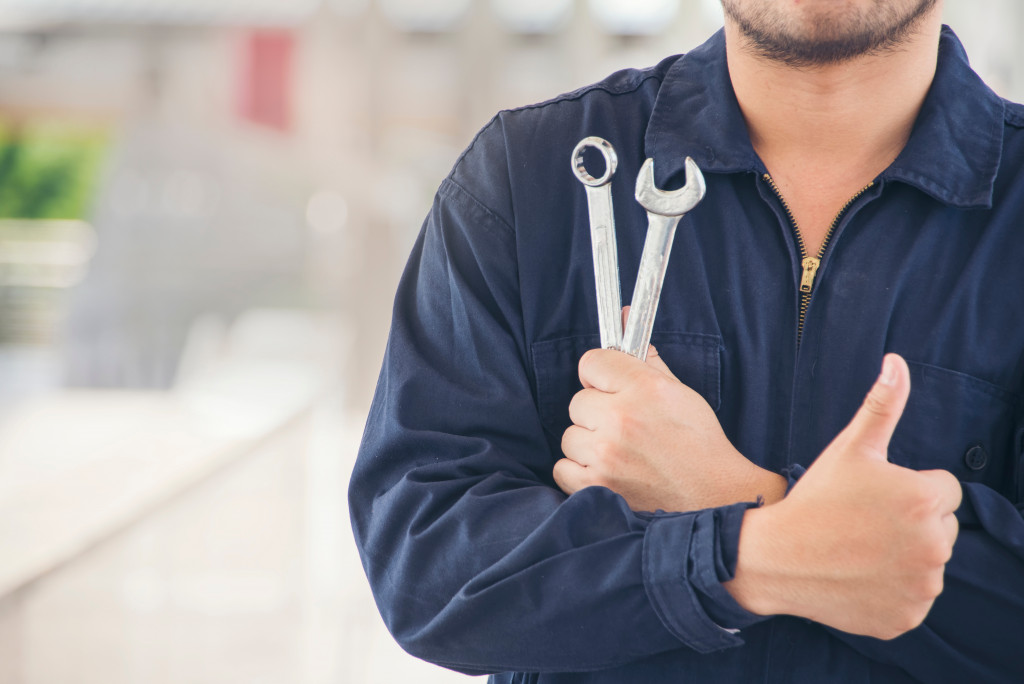Your home is a sanctuary for your entire family. Over the years, it will obtain some wear and tear due to aging and weathering, requiring some much-needed repairs or replacements. But not everyone will have the means to take on this task of hiring someone to do the job for them. Some will have to think about their budgets before starting any repairs to save for the more important things. Because of this, some steps can be taken before going headfirst into hiring professional services. Here are some of them to help you save money on repairs.
Know When to Call a Professional
Most people looking to save money on home maintenance will go straight to the DIY route. They will just go online and look for how-to videos, immediately starting as soon as possible. Sure, doing the repairs yourself can definitely minimize costs, but it never comes without risks. Some repair jobs like electric wiring or HVAC system repairs can become a threat to your family’s safety if not done well, so you must call your trusted electrician or HVAC contractor when you notice early signs of wear. Other times, you may be repairing the damage caused by another more expensive problem that needs to be addressed first. This is why sometimes hiring an expert may be the wiser choice as they know all about these problems and may be able to keep you away from repairs for longer.
Plan Your Budget
One of the most important things to prepare is your budget. Know how much you are willing to spend and stick to it no matter what you decide to do. This applies to both options of hiring a professional and doing the repair yourself. Being strict with your budget should help to avoid unnecessary expenditures. Try to get an estimate of the overall costs so that you can allot some cash for it. Especially if you plan to DIY, you will have more freedom in spending, so you may be able to bargain for some materials and luckily go under the budget.
Do It Yourself
There is nothing wrong with DIY-ing a repair. Sometimes, you are faced with only minor damage that can be fixed without spending a dollar. These can save you from having to call a repairman who will sometimes push you to pay for other unneeded repairs. Know that some repairs are easier to DIY than others. But this task doesn’t have to be just you and a how-to video. You can, of course, ask for help from other more knowledgeable people around you for free. You can enlist the help of family and friends if the task requires many hands. There are many ways to go about a DIY project, so do your research well to save as much as possible.
Look for Bargains on Construction Materials
Construction materials can be expensive. Some local hardware stores will only offer branded options for tools, parts, and replacements, vastly inflating the prices. When hiring a professional, some will also offer to buy the materials for you, which you will have no say over. So if you have the option of doing the shopping yourself, you should always try to look for cheaper (but more durable) options. You may go directly to manufacturing companies instead of the distributors. You can also go online and look for postings on unused or secondhand supplies. Just make sure that they are of good quality on par with the ones in the hardware stores.
Avoid Using Credit

We know the pros and cons of using credit to pay for our expenses. But when you are trying to save on repairs, paying upfront with cash might be the best choice to pick. Doing this should help you to save money in the long run.
Let Time Pass
Not all home repairs have to be done immediately. If it can wait and will not worsen if you leave it alone, you can always postpone the chore for a later time. This will allow you to save up specifically for the maintenance work and be able to afford the best repair option later on.
These tips can help you save a lot from the necessary repairs. But the most important thing here is to know when to spend good money. Especially for complicated repairs, you will have to spare no expense to ensure your family’s safety. Whether you will spend it on professional help or high-quality materials, you may be able to save more in the long run.

